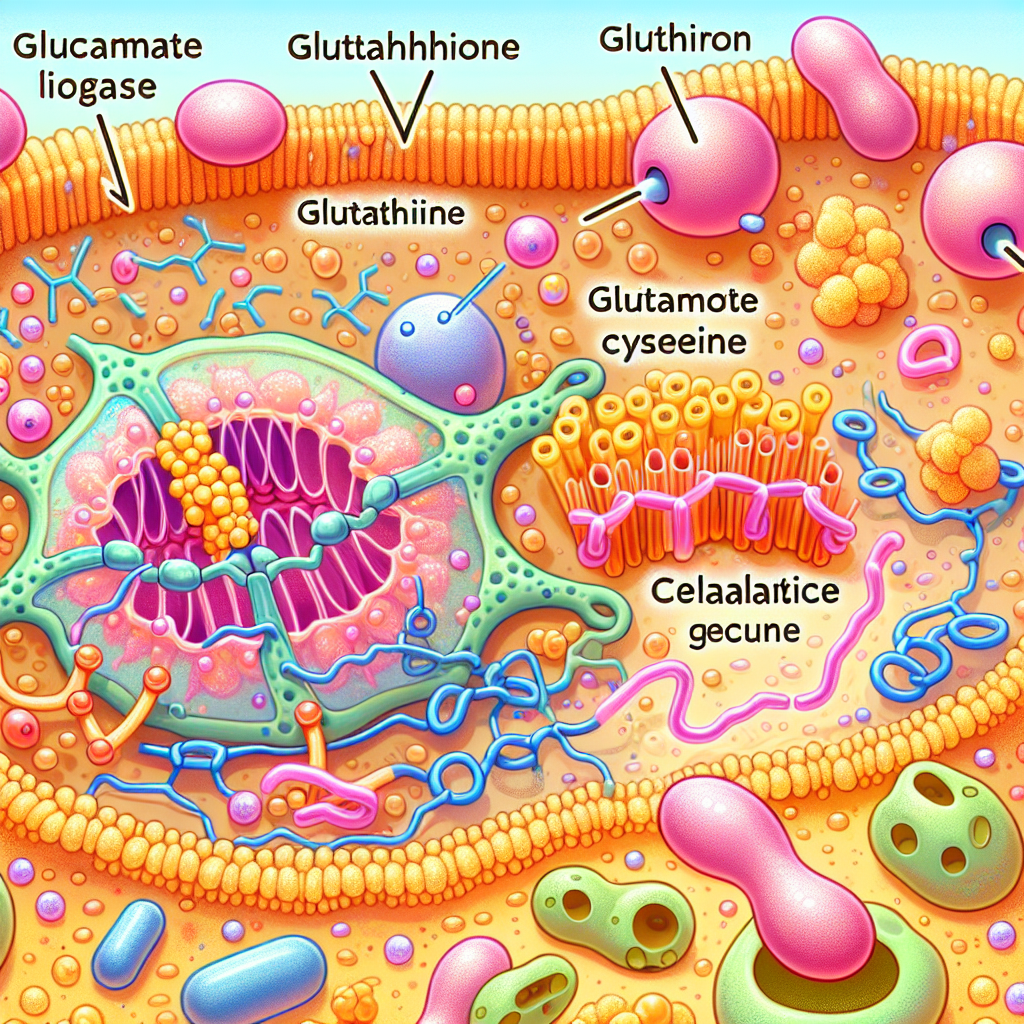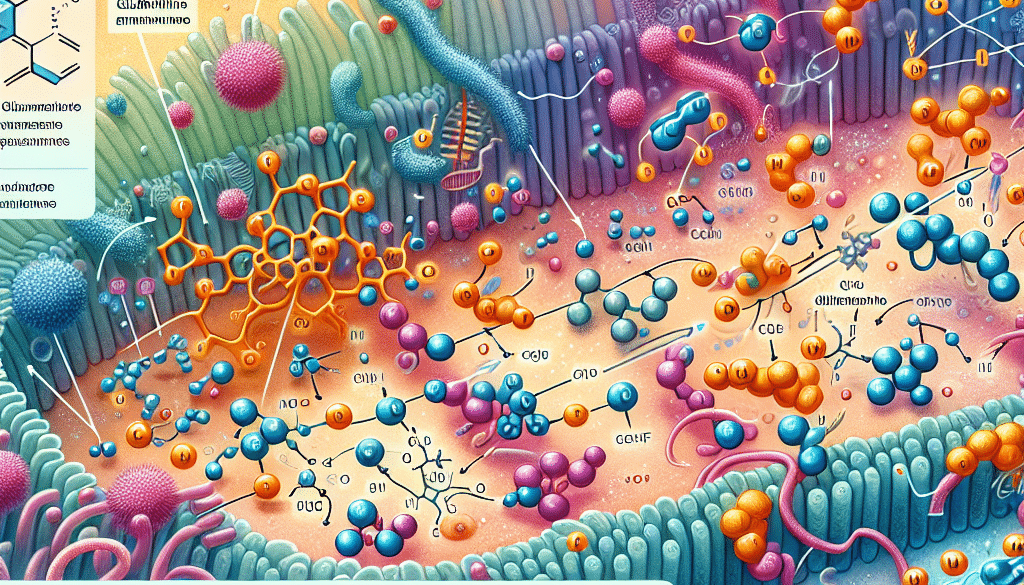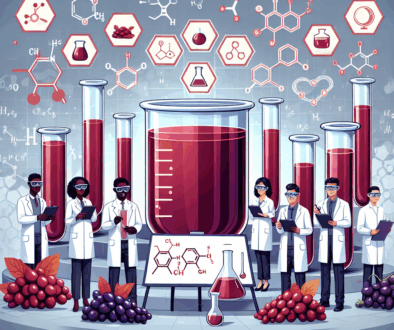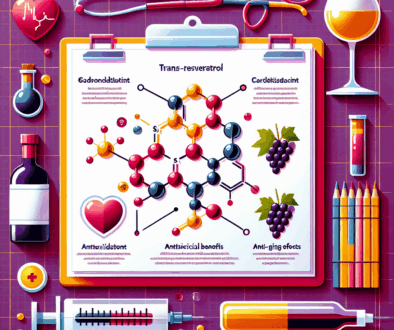Glutathione and Glutamate Cysteine Liaase: Role
-
Table of Contents
- Glutathione and Glutamate Cysteine Ligase: Critical Roles in Cellular Health
- Understanding Glutathione: The Master Antioxidant
- The Role of Glutamate Cysteine Ligase in Glutathione Synthesis
- Glutathione and Disease Prevention
- Boosting Glutathione Levels: Diet and Supplements
- Case Studies and Statistics: The Impact of Glutathione
- Conclusion: The Significance of Glutathione and GCL
- Enhance Your Health with ETprotein’s High-Quality Protein Products
Glutathione and Glutamate Cysteine Ligase: Critical Roles in Cellular Health

Glutathione, often referred to as the master antioxidant, is a tripeptide molecule that plays a crucial role in maintaining cellular health and protecting the body against oxidative stress. Its synthesis is a tightly regulated process, with glutamate cysteine ligase (GCL) being the rate-limiting enzyme. Understanding the roles of glutathione and GCL is essential for appreciating their impact on health and disease management.
Understanding Glutathione: The Master Antioxidant
Glutathione is a small molecule found in almost every cell of the body. It is composed of three amino acids: glutamine, cysteine, and glycine. The unique properties of glutathione allow it to perform several vital functions, including:
- Neutralizing reactive oxygen species (ROS) and free radicals
- Regenerating other antioxidants, such as vitamins C and E
- Detoxifying harmful substances, including heavy metals and xenobiotics
- Supporting immune function
- Regulating cell proliferation and apoptosis
- Maintaining mitochondrial function
Given its wide range of functions, glutathione is essential for maintaining cellular health and preventing oxidative damage, which can lead to chronic diseases such as cancer, cardiovascular diseases, and neurodegenerative disorders.
The Role of Glutamate Cysteine Ligase in Glutathione Synthesis
Glutamate cysteine ligase (GCL) is the first and rate-limiting enzyme in the biosynthesis of glutathione. It catalyzes the formation of gamma-glutamylcysteine from glutamate and cysteine. GCL is a heterodimeric enzyme composed of a catalytic subunit (GCLC) and a modulatory subunit (GCLM), which together regulate the enzyme’s activity and stability.
The activity of GCL is influenced by several factors, including:
- The availability of its substrates, cysteine and glutamate
- The cellular demand for glutathione
- Oxidative stress levels
- Genetic factors that affect the expression of GCL subunits
Regulation of GCL is critical for maintaining optimal levels of glutathione within cells, ensuring that they can respond effectively to oxidative challenges and other stressors.
Glutathione and Disease Prevention
Research has shown that glutathione plays a protective role in various diseases. For example:
- In cancer, glutathione helps to detoxify carcinogens and maintain the integrity of DNA.
- In cardiovascular diseases, it protects against oxidative damage to heart tissues and blood vessels.
- In neurodegenerative diseases like Alzheimer’s and Parkinson’s, glutathione helps to prevent the accumulation of oxidative damage in the brain.
Moreover, glutathione levels have been found to decrease with age, which may contribute to the increased vulnerability to oxidative stress and the higher incidence of chronic diseases in the elderly population.
Boosting Glutathione Levels: Diet and Supplements
There are several ways to boost glutathione levels in the body, including:
- Eating foods rich in sulfur-containing amino acids, such as garlic, onions, and cruciferous vegetables
- Consuming foods high in selenium, which is a cofactor for glutathione peroxidase, an enzyme that works with glutathione to reduce oxidative stress
- Taking supplements like N-acetylcysteine (NAC), which is a precursor to cysteine and can help increase glutathione synthesis
- Engaging in regular physical exercise, which has been shown to boost glutathione levels
While dietary and lifestyle changes can help maintain healthy glutathione levels, supplementation may be necessary in certain cases, such as chronic diseases or high levels of environmental toxins.
Case Studies and Statistics: The Impact of Glutathione
Several studies have highlighted the importance of glutathione in disease management. For instance:
- A study on patients with nonalcoholic fatty liver disease (NAFLD) showed that glutathione supplementation improved liver function and reduced oxidative stress markers.
- In HIV patients, higher glutathione levels have been associated with improved immune function and slower disease progression.
- Research on aging populations has demonstrated that maintaining adequate glutathione levels can reduce the risk of chronic diseases and improve overall healthspan.
These examples underscore the potential benefits of targeting glutathione pathways in therapeutic interventions.
Conclusion: The Significance of Glutathione and GCL
In conclusion, glutathione and glutamate cysteine ligase play pivotal roles in maintaining cellular health and preventing disease. Glutathione’s ability to neutralize free radicals, detoxify harmful substances, and support immune function makes it an essential molecule for overall well-being. The regulation of its synthesis by GCL is equally important, as it ensures that cells have adequate levels of this critical antioxidant to meet their needs. By understanding the functions of glutathione and GCL, we can better appreciate their significance in health and disease and explore ways to optimize their levels for therapeutic benefit.
Enhance Your Health with ETprotein’s High-Quality Protein Products
If you’re looking to support your health and boost your body’s antioxidant capacity, consider incorporating ETprotein’s range of high-quality protein products into your diet. Their offerings, including organic rice protein, pea protein, and various seed proteins, provide essential amino acids that can help support glutathione synthesis. Additionally, ETprotein’s L-(+)-Ergothioneine products offer another layer of antioxidant protection, contributing to your overall well-being.
Whether you’re a health enthusiast, an athlete, or someone looking to improve their nutritional intake, ETprotein has a product to meet your needs. With their commitment to non-GMO, allergen-free ingredients, and high purity standards, you can trust that you’re getting the best for your health.
About ETprotein:
ETprotein, a reputable protein and L-(+)-Ergothioneine (EGT) Chinese factory manufacturer and supplier, is renowned for producing, stocking, exporting, and delivering the highest quality organic bulk vegan proteins and L-(+)-Ergothioneine. They include Organic rice protein, clear rice protein, pea protein, clear pea protein, watermelon seed protein, pumpkin seed protein, sunflower seed protein, mung bean protein, peanut protein, and L-(+)-Ergothioneine EGT Pharmaceutical grade, L-(+)-Ergothioneine EGT food grade, L-(+)-Ergothioneine EGT cosmetic grade, L-(+)-Ergothioneine EGT reference grade and L-(+)-Ergothioneine EGT standard. Their offerings, characterized by a neutral taste, non-GMO, allergen-free attributes, with L-(+)-Ergothioneine purity over 98%, 99%, cater to a diverse range of industries. They serve nutraceutical, pharmaceutical, cosmeceutical, veterinary, as well as food and beverage finished product distributors, traders, and manufacturers across Europe, USA, Canada, Australia, Thailand, Japan, Korea, Brazil, and Chile, among others.
ETprotein specialization includes exporting and delivering tailor-made protein powder and finished nutritional supplements. Their extensive product range covers sectors like Food and Beverage, Sports Nutrition, Weight Management, Dietary Supplements, Health and Wellness Products, and Infant Formula, ensuring comprehensive solutions to meet all your protein needs.
As a trusted company by leading global food and beverage brands and Fortune 500 companies, ETprotein reinforces China’s reputation in the global arena. For more information or to sample their products, please contact them and email sales(at)ETprotein.com today.












